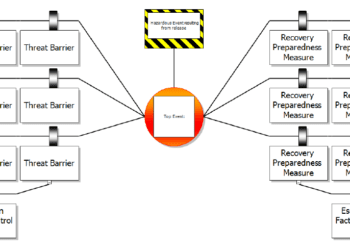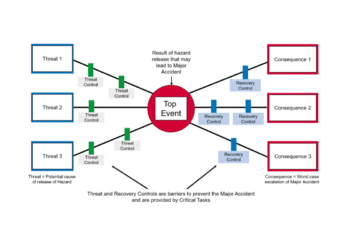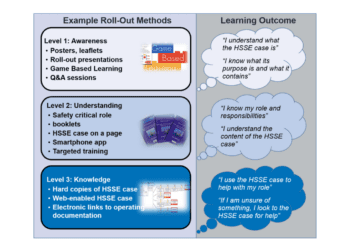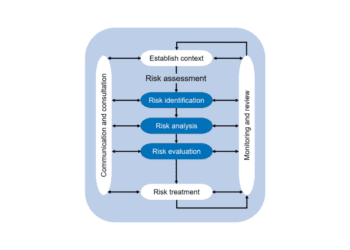A day in the life of a risk consultant – then and now
As Risktec celebrates its 20th anniversary, senior director Steve Lewis interviews Sheryl Hurst – one of our longest serving consultants – and asks her what’s changed since it all began back in September 2001.
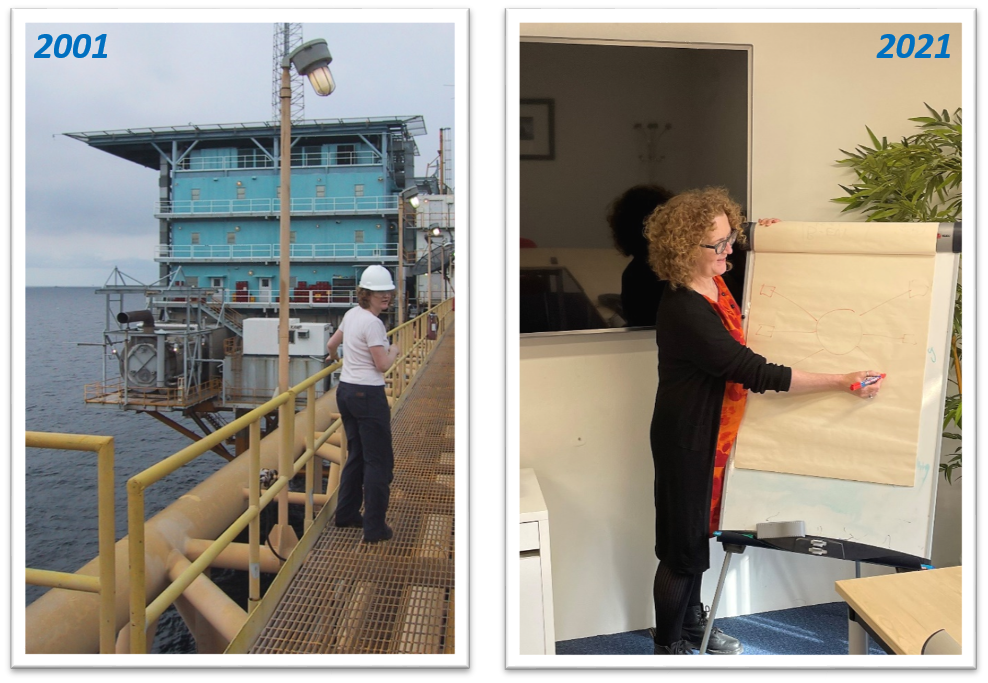
STEVE: HOW HAS THE TYPE OF WORK CHANGED?
Sheryl: The type of consultancy activities we carry out has always been driven by client problems and industry requirements. In those early days, most of our clients needed to submit regulatory safety cases which we helped to author – my very first job was a COMAH Safety Report for a distillery in Scotland.
As Risktec has grown in size and experience, the type of work we do has certainly expanded and we now conduct a lot of niche studies and research, and produce bespoke deliverables. I took a look at our log of projects and counted 75 different types of service we provide, and that’s just for oil and gas clients.
Over the years I think the most unusual situations I have found myself in must be travelling 1km underground at a gold mine, explaining technical risk assessments at a six-week public planning hearing, and auditing management arrangements for the renovation of BBC’s Broadcasting House in London.
STEVE: WHAT ABOUT THE TOOLS WE USE?
Sheryl: The tools we use as a company have evolved considerably, from simple spreadsheets and hand calculations to sophisticated modelling software and databases. We also build our own tools, whether that’s to allow us to provide more efficient consultancy services, or to hand over to our clients so they can undertake assessments for themselves.
The tools we use internally to administer the business have also developed massively. I remember at the end of the first week in September 2001, we realised we didn’t have a means of recording chargeable hours and very quickly had to develop a time-tracking system in Excel.
Our ‘action tracker’ was an A3 piece of paper pinned to the wall, and we all shared the same desktop telephone. Now we have an integrated SAP-based system across all offices and, in the remote working era we all now live in, we are routinely using MS Teams and Skype for video calls and virtual meetings.
STEVE: DID YOU THINK, IN 2001, THAT RISKTEC WOULD GROW TO OVER 300 PEOPLE?
Sheryl: My employee number on the payroll is 00002! We grew quickly in those first few months, reaching about 25 people by the end of 2001, but I never envisaged we would become an organisation with 15 offices and more than 300 hundred people.
Our successful growth has naturally affected the day-to-day nature of my job. In the first few years I travelled internationally a lot, spending weeks at a time living out of a suitcase (and once living in a shipping container in the desert). A lot of my projects were delivered just by me and these were the days before smartphones so it was quite isolating at times.
Now I manage a team of 20 consultants and my main responsibility is to make sure work is assigned to the right people and that they get the support they need to complete their tasks. I spend a lot of time ‘oiling the wheels’ of the team, troubleshooting and anticipating problems.
We frequently set up inter-office projects, which means we can be close to our clients while at the same time delivering high quality work efficiently and cost-effectively, but this takes a lot of coordination and communication.
STEVE: HAVE THE CUSTOMERS CHANGED?
Sheryl: Our typical client tends to be the HSE, operations or asset manager say, of a high hazard facility or activity, which might be associated with an offshore oil platform, drilling rig, chemical plant, wind farm, nuclear power station or rail infrastructure.
Every year, about 25% of our clients have never used us before, so we always have customers who are new to Risktec. On the other hand, we get over 85% of our work as repeat business. From day one, our ethos has been to develop a long lasting relationship by doing quality work and being open with clients, even if it means turning work away in the short term.
Personally, I find it incredibly satisfying when we pick up a new enquiry from someone who has never spoken to us before, and just give them some advice or deliver a small piece of work which turns into more work the next time that same client has a different problem.
STEVE: TO FINISH UP, IN YOUR OPINION, WHAT MAKES RISKTEC, RISKTEC?
Sheryl: Without doubt the people I work with on a daily basis, whether that’s the people in my team, or colleagues in other teams and locations. I suppose I’m in a privileged position, having been here so long I know most people and wouldn’t hesitate to pick up the phone or video link to speak to any of them. I think we have a very transparent and honest culture, with a strong sense of teamwork.
Variety is also important – different types of work, different personalities, and different client expectations – it’s a cliché but no two days are ever exactly the same.
Ultimately, you get out of a job what you put into it, and I feel that a large number of people are continually working together and putting in a great deal of effort to make Risktec the successful organisation it is today, 20 years after we started.
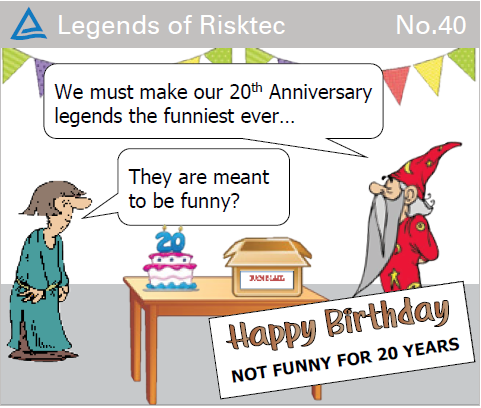
This article first appeared in RISKworld 40, issued November 2021.

